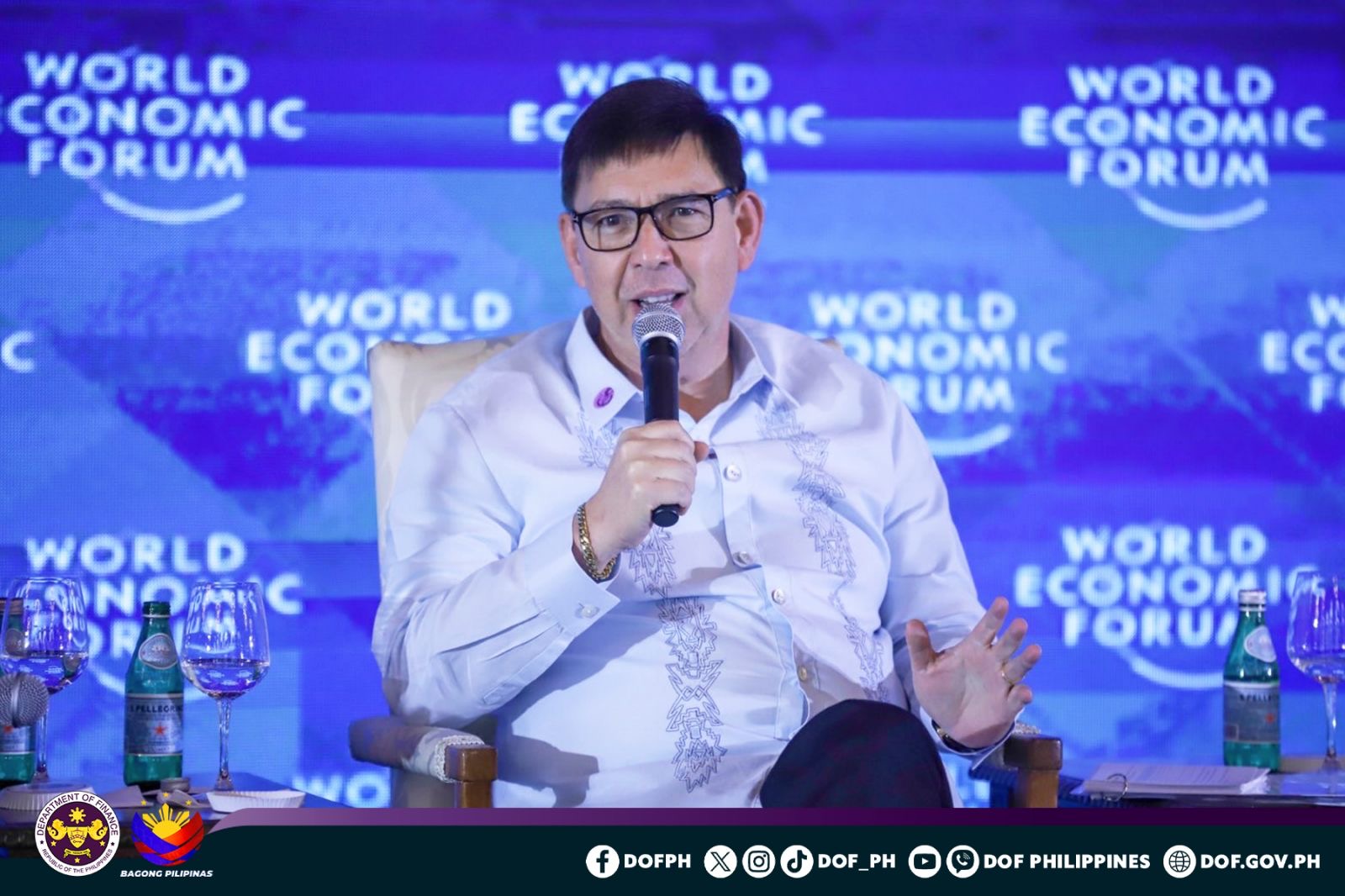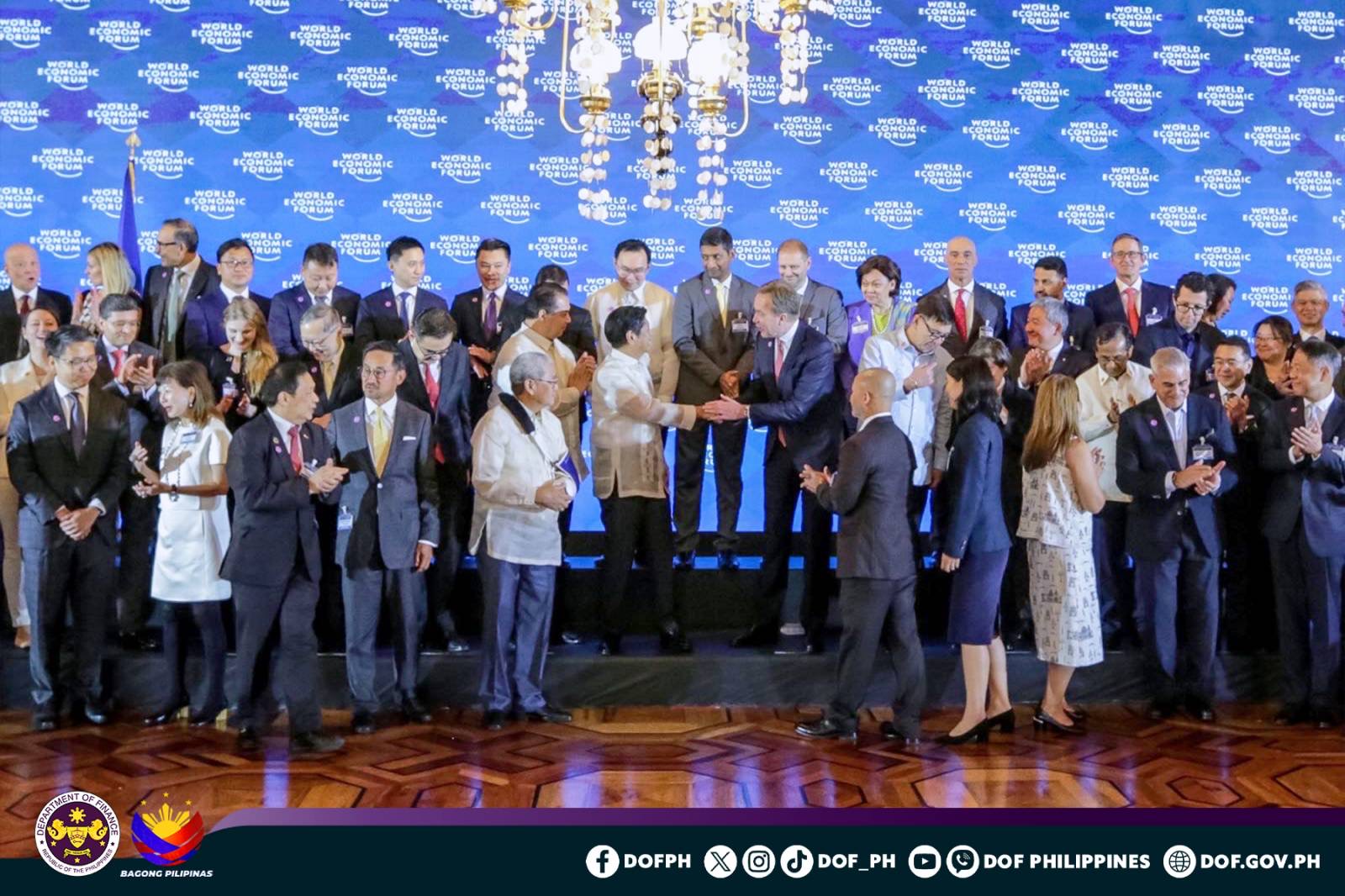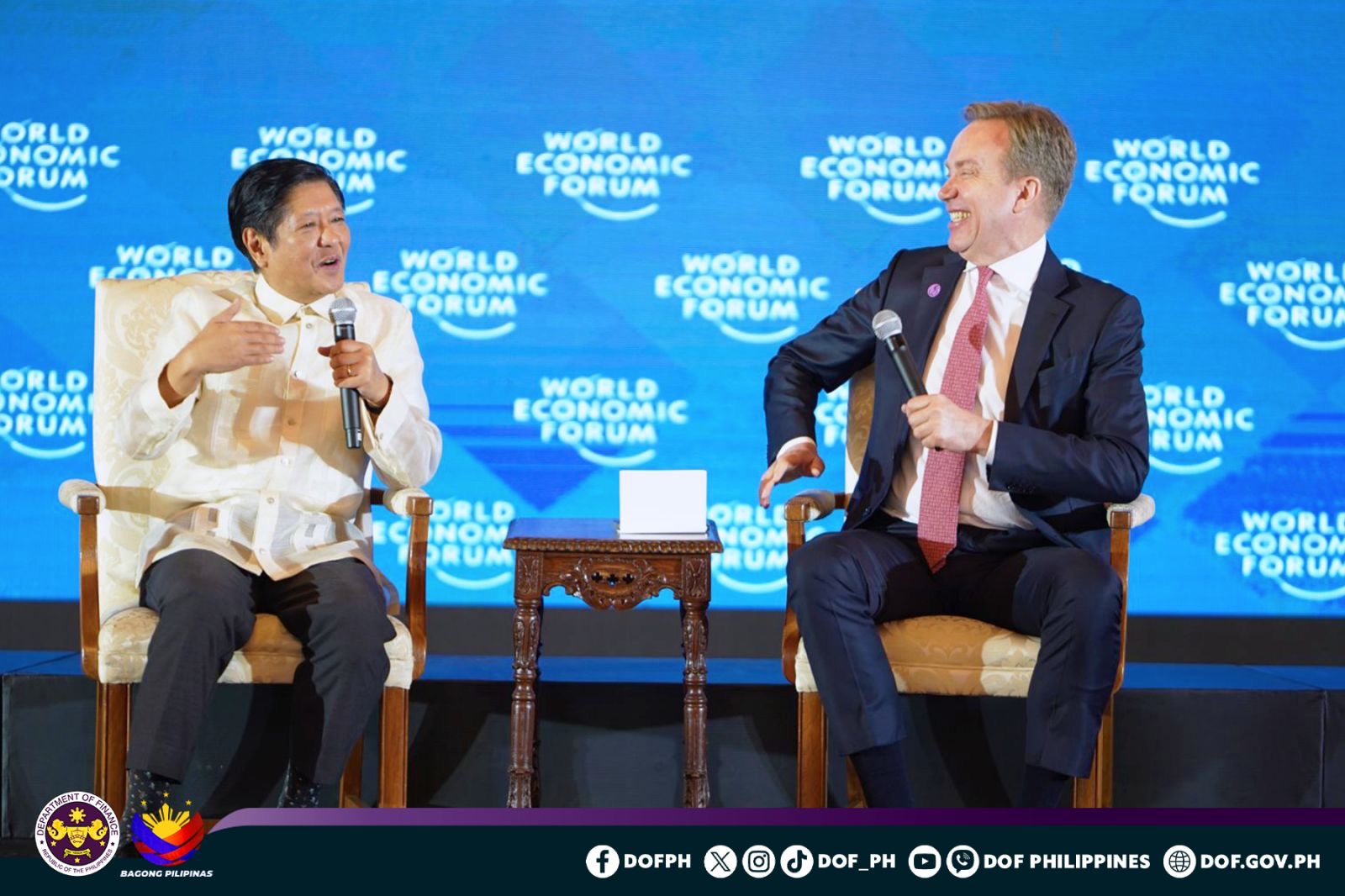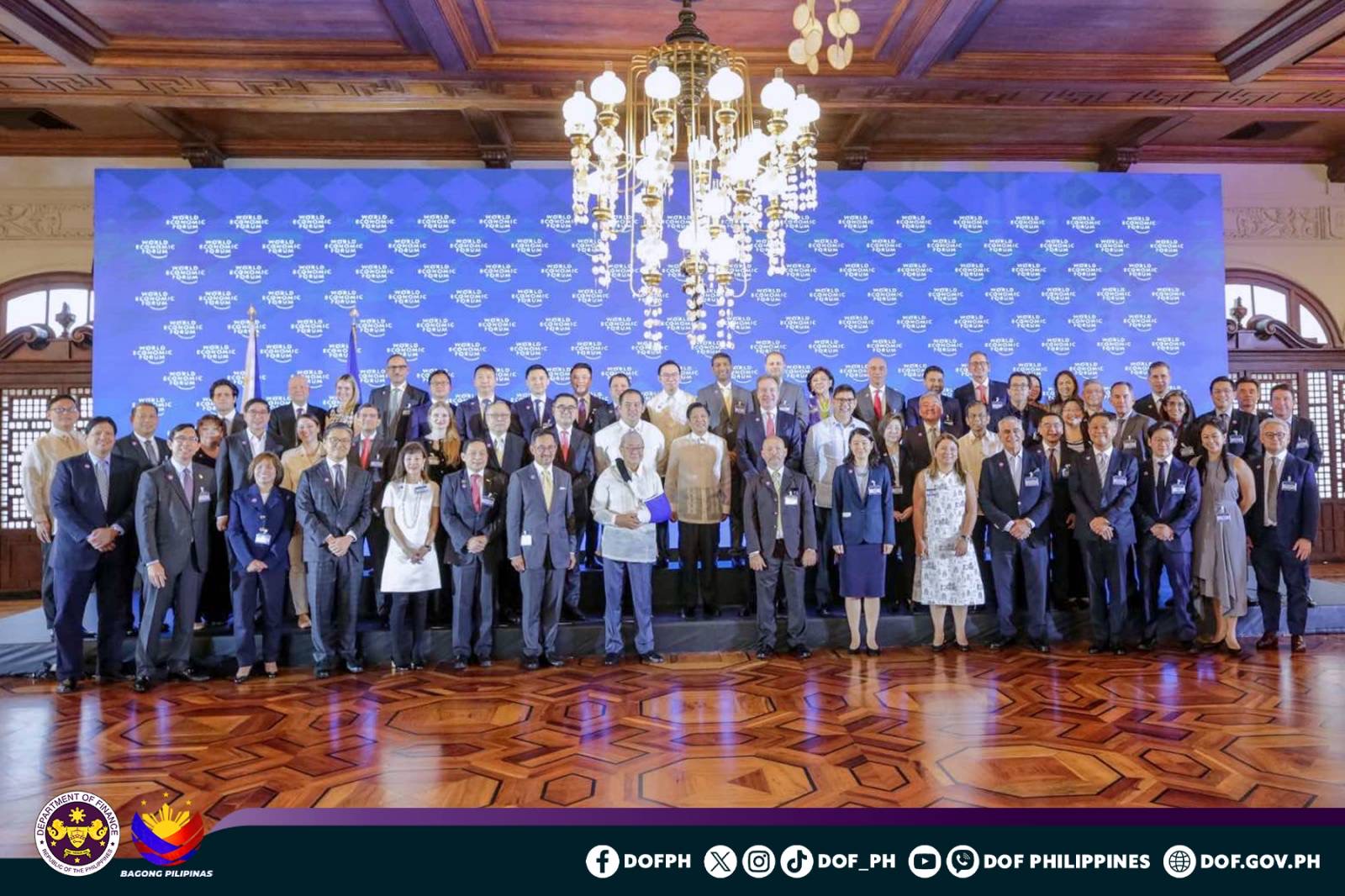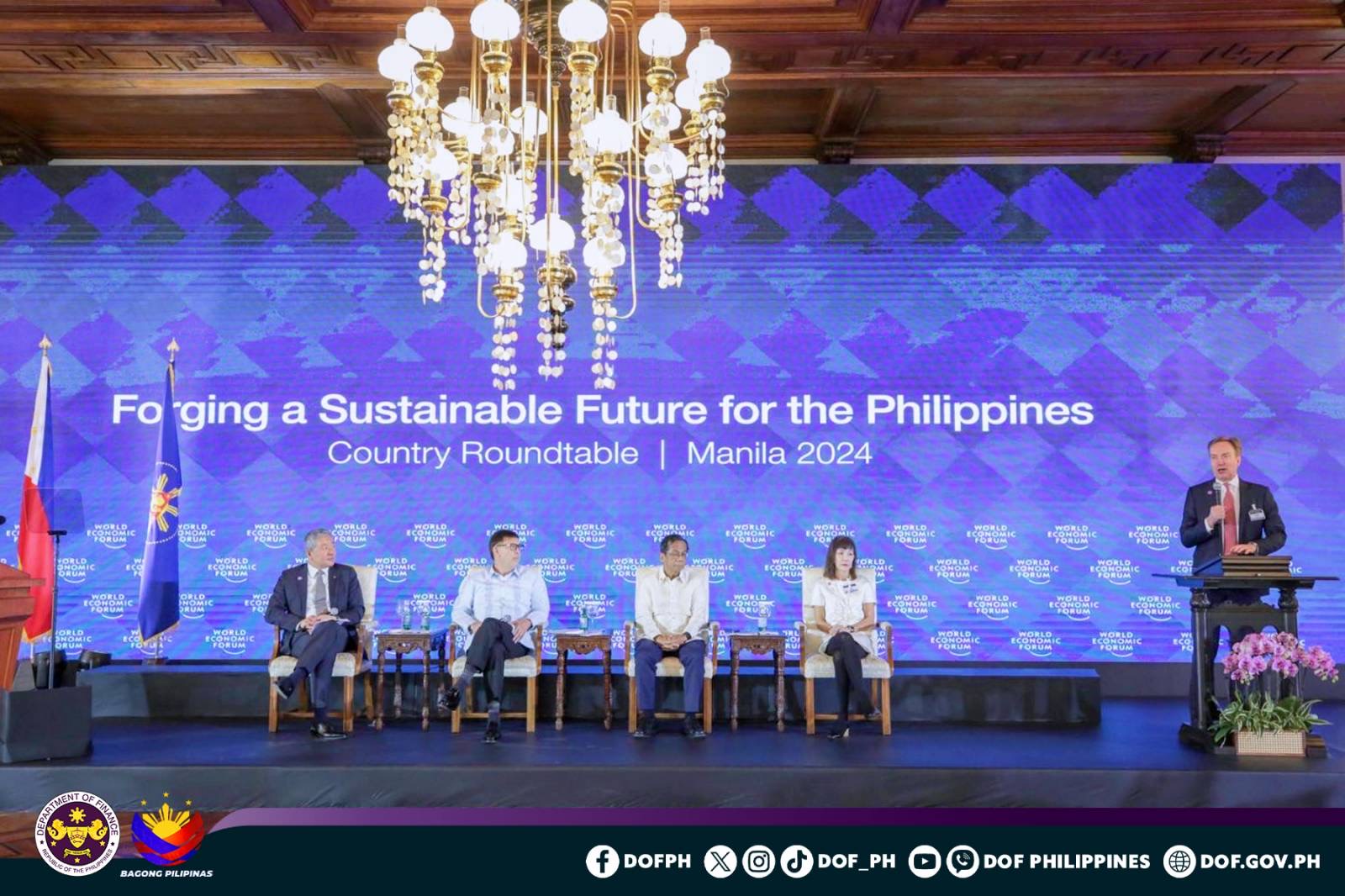Finance Secretary Ralph G. Recto has expressed optimism on the World Economic Forum’s (WEF) bullishness on the Philippines which forecasts the country to be well on its way to becoming a USD 2-trillion economy in the coming decade during its Country Roundtable in Manila on March 19, 2024.
“I am confident that throughout the roundtable, albeit short, we were able to send a clear message: the Philippine economy is on its way to becoming a global superpower. The strong interests from business leaders during the sessions give me great confidence that we will be able to transform these into tangible progress and investments that will not only benefit the country but also bring shared prosperity to the entire global community,” he said.
Global business leaders and decision makers have flown all the way to Manila to convene and engage in the WEF Country Roundtable on the Philippines to personally look into the Philippine economy’s growth story and explore investment opportunities through discussions with government officials and local private sector leaders.
Among the participants were top global executives from the private sector’s energy, infrastructure, finance, banking, telecommunications, and marketing industries.
The roundtable was a joint effort between the Government of the Philippines and the WEF and was the first high-level roundtable to be convened in the Asia Pacific Region since the pandemic.
During the press conference about the Country Roundtable, WEF President Børge Brende expressed bullishness about the Philippines, provided that game-changing reforms continue.
“I think that this can be—in the coming decade—a 2-trillion dollar economy if there are better investments in education, infrastructure, and also if it will be able to draw on the great competence of the people of the Philippines,” Mr. Brende said.
“[T]he economy here has really shown how resilient it is. We are seeing a lot of global business interest in the Philippines. It’s now the fastest-growing economy in the region,” he added.
The WEF foresees the economy becoming the 18th largest economy in a few years and the 12th largest in the world.
Special Assistant to the President for Investment and Economic Affairs Secretary Frederick D. Go expounded on the Marcos, Jr. administration’s reforms and policies to lay out a red carpet for investors and enhance the ease of doing business in the country.
These include the Public-Private Partnership (PPP) Code; the Ease of Paying Taxes (EOPT) Law; Executive Order (EO) No. 18 Constituting Green Lanes for Investments; and EO No. 32 Streamlining the Permitting Process for the Construction Of Telecommunications and Internet Infrastructure.
Secretary Go also shared that the amendments to the Corporate Recovery and Tax Incentives for Enterprises (CREATE) Act will bring stability to the guidelines that govern foreign direct investors, particularly those that are in the export business.
Amid ongoing global headwinds, Mr. Brende said that the country remained on investors’ radars due to its stable and sound fiscal policies, saying, “I know that Secretary Recto is also very much looking after that. I think there is also [a] stable monetary policy. I think there is also a keen interest from the current president and the cabinet to also get rid of unnecessary red tape and create the right investments for future growth.”
On the part of the Department of Finance (DOF), Secretary Recto leads the implementation of the Growth-Enhancing Actions and Resolutions (GEARs) plan, which entails maintaining macroeconomic stability while pursuing fiscal consolidation and achieving investments-led growth through improvements in the regulatory regime, reduction in the cost of doing business, and addressing constraints.
“[T]here is interest in the Philippines. That’s why we’re passing CREATE MORE. That’s why we’re doing PPPs. And we had several discussions earlier to do more of them, particularly airports and bundling some of the airports together. There seems to be a lot of interest also in this space together with renewable energy,” the Finance Chief said.
To further support economic growth and attract more investments, Mr. Brende said the Philippines needs to address red tape and bureaucratic bottlenecks, as well as create a conducive environment for entrepreneurs and startups.
“I think the aim should be for the Philippines to be the country of unicorns,” he said.
In addition, he underscored the significance of enhancing productivity by further upskilling the labor force to spur economic growth as he recognized the Philippines’ young, highly-skilled, and English-speaking workforce, which are key advantages in creating a knowledge-based economy.




